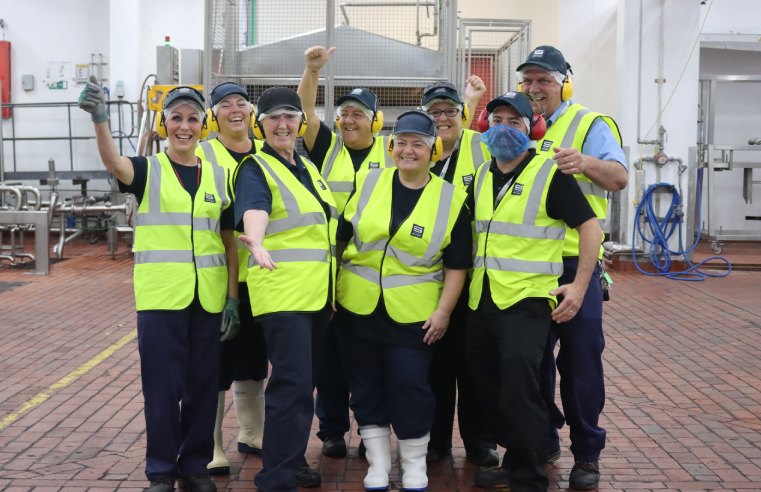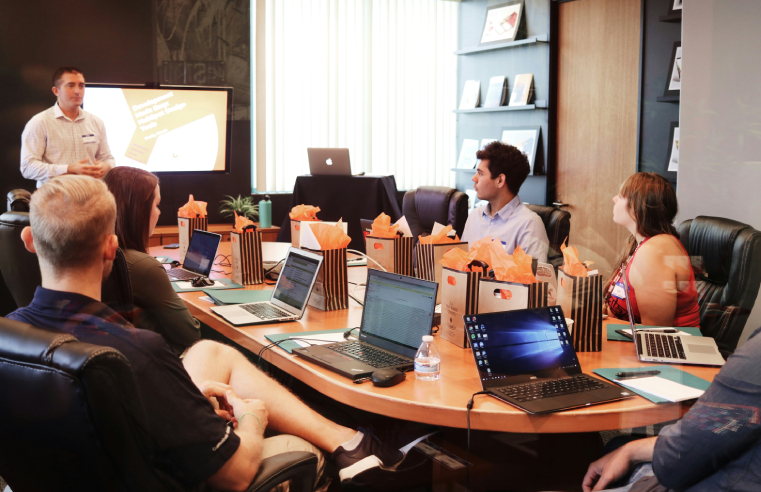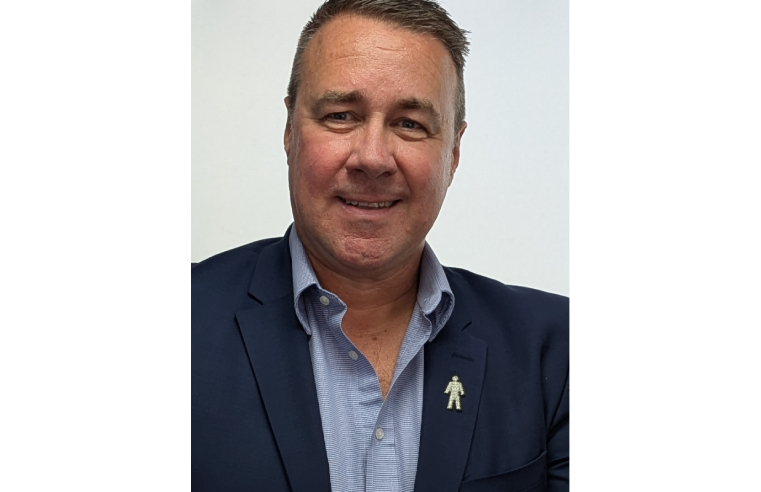Samsic UK’s HR Director Andrew Safo-Poku Jnr and Finance Director Baldip Brreach discuss the recruitment and retention issues that are being felt throughout the FM industry, and look at ways in which talented employees can not only be found, but kept.
Recruitment issues, skills shortages and retention difficulties are putting businesses under pressure throughout the UK. Service industries, haulage and construction are just a few of the sectors that are becoming more and more vocal about their concerns for the future as talented, loyal employees become harder to find.
The FM industry as a whole is no different and yet, anticipated sector growth means the industry is looking ahead to a positive year with recruitment high on the agenda.
The RICS UK Facilities Management Survey for the third quarter of 2023 cites that employment levels are expected to rise due to growing demand from the education and healthcare sectors, broader public sectors and serviced business spaces.
However, whilst the outlook is strong for employment, filling those jobs remains difficult across several areas, including finding skilled building and maintenance operatives. More than eight in ten (86%) of contributors to the survey highlighted problems filling such roles, an increase from 70% in the previous quarter and the highest percentage since the survey began in 2020.
The survey also spotlighted that around two-thirds of respondents had encountered problems finding support service staff, while 52% were battling a shortfall in candidates for property management positions.
It seems the industry may be facing a balancing act between growth and a positive employment outlook, and difficulties finding the right staff to fill their roles.
Various factors have to be acknowledged as having impacted on staff recruitment for our sector.
Competition has certainly been a challenge for the past few years and it differs from region to region. In London, for example, there are more opportunities than in Wales, Scotland, and the Midlands, while the South East can also present recruitment issues.
Covid-19 impacted heavily on the FM sector and Brexit is still having an effect, as the talent pool continues to shrink. Some organisations are offering more and more to attract the right employees but this is creating a people’s market, with every organisation competing for the best.
Another barrier to recruitment is the very nature of the facilities management industry. Roles, especially in cleaning, are mostly part time, whereas people want full time, certainly during a cost-of-living crisis. Cleaning itself probably still carries a stigma and is seen as less exciting than some other industries. A case could be made that people are tempted to move away from this industry with the lure of more money into other service sectors, such as logistics, retail or hospitality.
It is important therefore that future employees realise that facilities management is an innovative industry with plenty of scope and opportunity for progression and success.
So, how can the industry turn the negatives into positives and find the right people who will support growth and remain loyal to their organisation?
A positive and streamlined recruitment process is a good place to start. Samsic has created a guide that not only provides a bespoke approach to each job role, but also takes account of the applicants’ perspective, helping to foster a diverse and inclusive workforce. It is also important to find candidates who will suit the company culture and embrace your ethos and drive.
A candidate pack is provided for management level roles to ensure the right cultural fit by promoting a clear understanding of company culture and ethos. All adverts for management roles are circulated internally to ensure upskilling and promotional opportunities from within.
Reputation also plays a part in finding the right people. Word of mouth is essential, and staff need to become business ambassadors, prompting friends and family to apply for job vacancies.
Facilities management often attracts younger staff, and a significant proportion are parents returning to work. It can be a challenge to find the right methods of getting in front of these potential team members.
Recruitment platforms, social media campaigns, local job fairs, colleges and universities, as well as the job centre, all have a role to play. But when you do get someone’s attention, it’s what you say and offer that is important, especially when it comes to emphasising the opportunities to learn, grow and become future leaders.
Therefore, a business model that acknowledges the importance of people investment is a major step in the right direction. It needs to provide scope for training, progression, and promotion, not just as a strategic move, but something that is ingrained in a company’s culture.
Ideally, you want people for the future who understand the business and what it can do for them, which is why as part of our onboarding process we do a presentation about the journey of Samsic, which offers a variety of security and cleaning services as its core business, so that they know that if they believe in the journey, then they too can progress.
Investment in training and development is therefore crucial in creating a pathway for employees so that they can see there is a chance of improvement. Until people believe that there is a career for them in the industry, it is difficult to retain them.
Talent management can support the entire employee lifecycle to ensure upskilling and development for staff at all levels. Close performance monitoring through the appraisal process can help to nurture existing and upcoming talent, while performance recognition is also important, including long service awards.
Progression does not have to be linear either. It can be sideways, allowing an individual who has worked in one department to move across to another. Internships are one way of helping staff understand other departments and show that one day, if they get their qualifications, the opportunities are there.
It is clear that offering stability and progression through extensive training is powerful in creating not just a loyal workforce but happy clients as well. Samsic has developed site-specific training as well as having two BICSc accredited training centres, plus a Learning Management System (LMS) that provides bespoke site-based, contract specific, training courses for staff to complete at their desk or on mobile devices.
There are around 900 individual courses which can also be turned into training or management development plans. Mentorship programs also have a part to play and new hires can gain a lot from experienced employees who can provide guidance, support, and insights into career development.
By creating career support, people have access to up-skilling programmes, step-up programmes, training and management programmes. People may join as a front-line operative but the opportunities are there to progress.
Creating the right work environment is also important. Strong HR, supporting equal opportunities, providing competitive compensation packages, induction courses, appraisals, staff nomination reward programmes, as well as prioritising wellbeing, mental health support and career advancement programmes all have a role to play, along with salary access schemes, such as Wagestream, and being an Accredited Living Wage Employer. Together, such actions can increase staff morale, performance, and retention, while reducing absenteeism.
Offering more money or more holidays can have instant appeal, but it is limited. Investing in training and development whilst offering financial and wellbeing support is often more effective when it comes to retention.
Flexibility is also important. In speaking to our own staff post-Covid, it became clear that they preferred a health balance between working from home and in the office, with the benefits the latter brings for wellbeing and camaraderie, especially for office staff. Social events are now back on the calendar.
When it comes to job roles, adopting a flexible approach can provide essential staff support. If we have two or three jobs in the same area and people are willing to travel, we’ll put them together to create a full-time package that suits their needs with full-time hours.
It is also important for a company not to rest on its laurels. One way to ensure continuous improvement and understanding is to conduct surveys in order to gather data. It means a company can understand its people better and react if something needs to change.
Such an exercise can reveal staff sentiment and one such survey for us highlighted a need for improved communication at all levels. We responded by creating Samsic One which allows two-way talk. It helps to promote best practice and encourages people to become invested in the business knowing that they are being heard. It is a way of treating employees as people, not just a number.
However, there is one final ingredient needed in order to not just find the right people but to keep them as well, and that is a cultural fit.
It may seem like a buzzword, but it is becoming more and more important for applicants, as they look for a place where they know they will feel welcome, can express their views, be understood and allowed to communicate.
Making people feel like they belong and have a role to play in a setting where they are cared for and nurtured can not only inspire loyalty but promote a sense of pride in their work and the company.
Emphasising collaboration, teamwork and shared responsibility is crucial in creating a family-like atmosphere where individuals feel valued, supported and connected throughout the business.



































